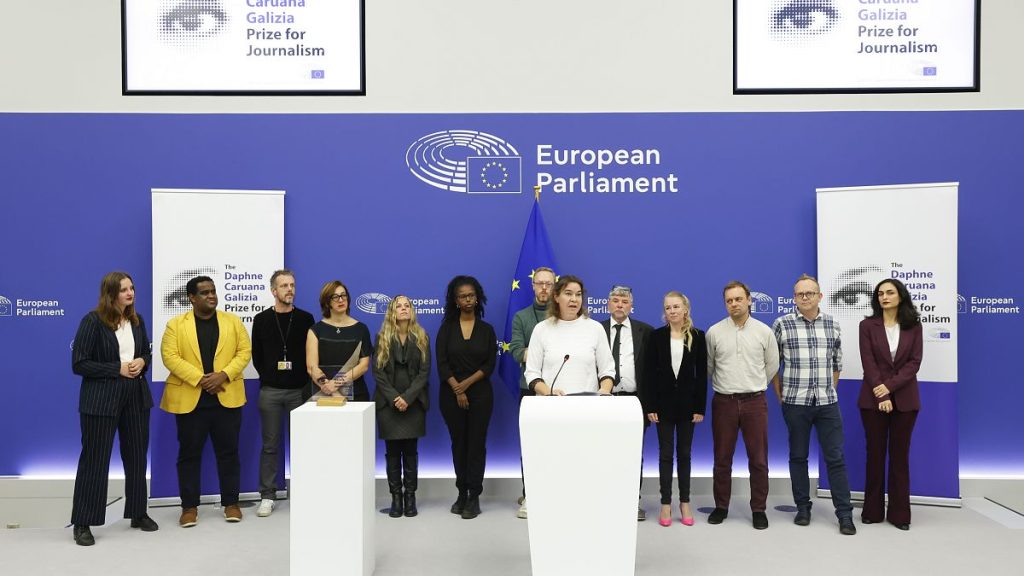The European Parliament’s 2024 Daphne Caruana Galizia Prize for Journalism was awarded to an investigation into the disappearance of over 50,000 child migrants. Led by Dutch journalist Geesje van Haren, the Lost in Europe project revealed that nearly 47 migrant children arriving in Europe go missing per day since 2021. Van Haren highlighted that many of these missing children become victims of human trafficking or end up in the EU’s crackdown on people smuggling gangs. The EU’s efforts against people smuggling can unintentionally lead to minor children being imprisoned for smuggling while they were themselves being smuggled. The investigation also found that police often fail to protect these children due to high pressure on investigating other crimes like drugs.
The research conducted by Lost in Europe shed light on discrepancies in documentation and reporting across 31 countries, including Austria, Germany, and Italy, suggesting that the actual number of missing children could be higher. Initial research in 2021 revealed that over 18,000 migrant children went missing between 2018 and 2020. NGOs and experts in the field noted that this figure of missing children is just the tip of the iceberg, with a staggering 51,433 children missing. Some countries, such as France and Spain, faced challenges in providing data, with France not responding at all and Spain not differentiating between adults and minors in their data. Van Haren expressed hope that the new EU pact on migration and asylum will improve data collection processes and reveal more missing children in the future.
Lost in Europe began delving into the stories of missing or ‘lost’ migrant children after a comment by a former Europol chief of staff in 2016 that over 10,000 migrant minors had gone missing in Europe. Despite the challenges faced in collecting accurate data and accessing information from some countries, the team plans to conduct a follow-up investigation in three years. The investigation exposed the failures of the police system to protect these vulnerable children and highlighted the pressures faced by law enforcement in investigating crimes like human trafficking and drugs. Van Haren emphasized the urgent need for improved data collection and stricter measures to address the issue of missing migrant children.
The Lost in Europe project’s recognition by the European Parliament’s journalism prize reflects the importance of shedding light on the plight of missing child migrants and the failures of the system to protect them. Van Haren stressed that the missing children are often caught at borders or end up in adult detention due to the complexities of the EU’s policies on people smuggling. The investigation’s findings point to a larger, systemic issue of vulnerable migrant children falling through the cracks of a fragmented and under-resourced system. By highlighting the challenges and inconsistencies in data collection and reporting, Lost in Europe aims to bring attention to the urgent need for better protection and support for migrant children in Europe.
The in-depth investigation conducted by Lost in Europe involved collaboration with media outlets from several European countries, including Germany, Italy, Greece, the Netherlands, Belgium, Ireland, and the UK. This multi-national effort underscored the cross-border nature of the issue of missing child migrants and the importance of coordinated action at the European level. The project’s findings have sparked calls for increased transparency, accountability, and collaboration among EU member states to address the root causes of child disappearances and improve protection mechanisms. By raising awareness of the vulnerabilities faced by migrant children and the systemic failures in safeguarding their rights, Lost in Europe has paved the way for future advocacy and policy reforms to better address the challenges faced by this marginalized group.













